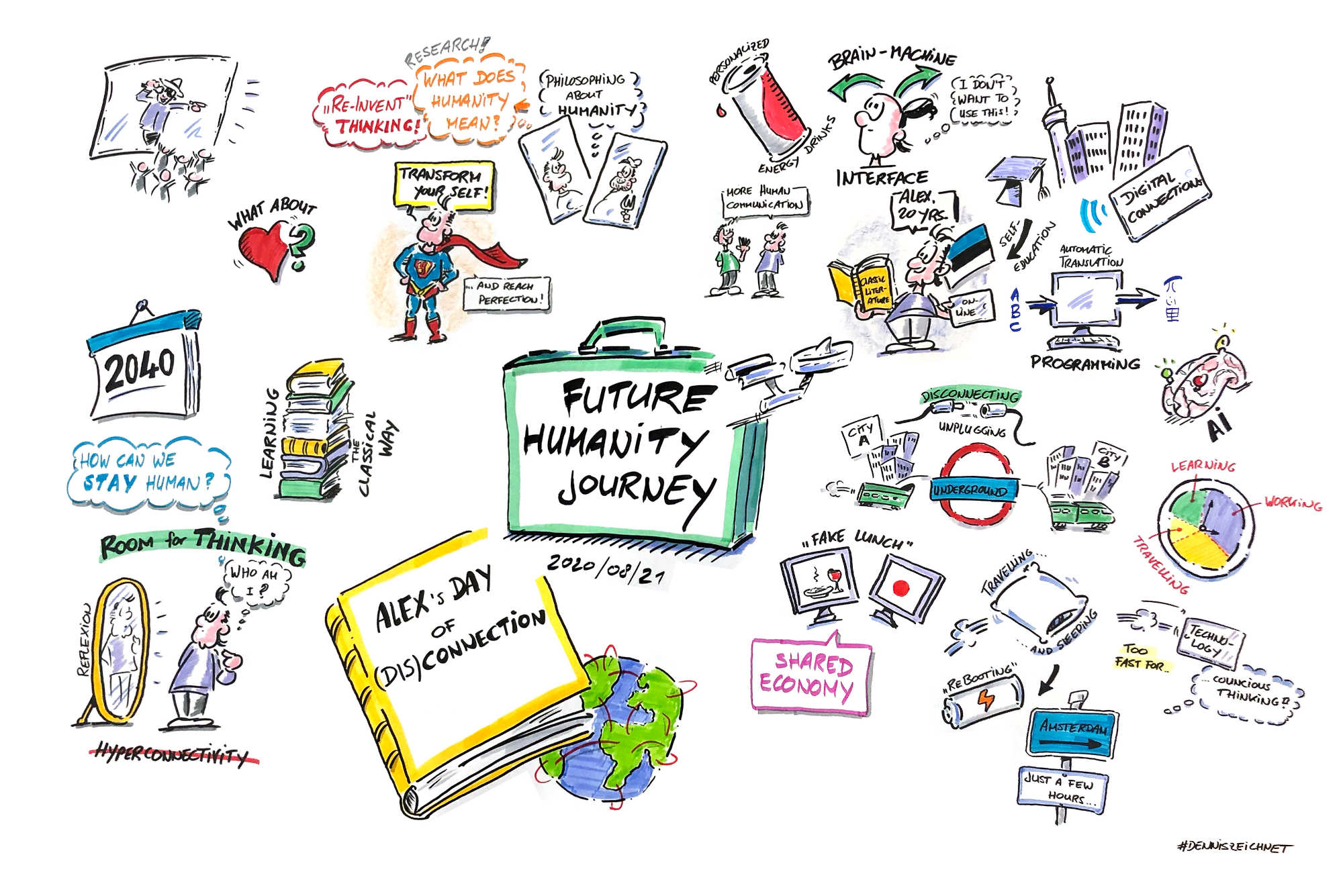A day in 2040: what would our day look like in 20 years?
Future Humanity Journey ist ein experimenteller Workshop. Vier PionierInnen entwarfen ein Zukunftsszenario der Menschheit, um besser zu verstehen, wie sie sich entwickeln und entfalten wird.
In diesem Projekt wurden vier ExpertInnen mit unterschiedlichem Hintergrund eingeladen, um über die Zukunft der Menschheit zu diskutieren. Die Themen reichen von großen globalen Fragen bis hin zu subtiler Alltagsfreude, integriert in einen Kurzfilm, der einen imaginären Tag im Jahr 2040 zeigt. Am Ars Electronica Festival wird das endgültige Szenario und ein Video, das die Highlights der Gesprächsrunde zeigt, präsentiert. Das Publikum ist darüber hinaus zu weiteren Diskussionen eingeladen, um die Vision der zukünftigen Entwicklung der Menschheit zu vertiefen.
Moderator: Yoko Shimizu (JP/AT)
Speakers: Eric Dahlstrom (US), Kyoko Iwaki (JP), Leila Nachawati (ES/SY), Michael Sedbon (FR)
Biographien
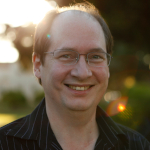
Eric Dahlstrom (US)
Mr. Dahlstrom is an astronomer and space engineer who worked for NASA on the design of the International Space Station and the risk of Shuttle accidents. Mr. Dahlstrom supports entrepreneurial space companies, including commercial lunar spacecraft, and has applied artificial intelligence to the hazard of asteroid impact. He is a co-founder of SpaceBase, a social enterprise focused on democratizing space starting with New Zealand, and is a member of the faculty of the International Space University, having taught in ten countries.
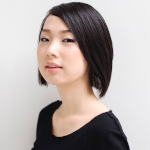
Kyoko Iwaki (JP)
Kyoko Iwaki is a theatre and performance researcher at Waseda University. From September 2020, she is appointed as Lecturer at University of Antwerp. Her research focuses on Japanese and European theatre of nonhuman genealogy. She obtained a PhD from Goldsmiths, University of London in 2017. A year later, she became a Visiting Scholar at City University of New York. Prior to entering academia, she has worked over a decade as a theatre critic contributing to Asahi Shimbun. She is the author of Japanese Theatre Today: Theatrical Imaginations of Eight Contemporary Practitioners (2018) and has contributed to many publications issued from Cambridge University Press among others.
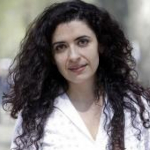
Leila Nachawati (ES/SY):
Madrid-based writer and free speech advocate with a special focus on the Middle East and North Africa. She is a professor of communications at Madrid’s Carlos III University and contributes to several media such as Al Jazeera English, El Mundo, Global Voices Online, Global Voices Advocacy and Eldiario.es.
She works as a communications officer at APC.org, a network of activists supporting persons and organizations through information and communications technology.
She recently published her first novel, „When the revolution is over“, a story about the civic movement in the Middle East and North Africa during 2011.
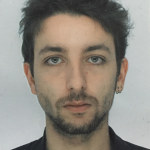
Michael Sedbon (FR):
Michael Sedbon is an Interaction Designer and artist working in Europe and Asia.
He is currently based in Paris. His work explores digital networked technologies and systems through their convergence with non-human intelligence (plants, unicellular organisms, insects, bacterias etc…) in regards to the Infocene problematics, seen as, our current cultural era where Information is the force having the biggest impact on human societies and environments.
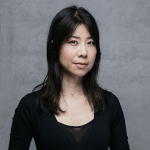 Credit: vog.photo
Credit: vog.photo
Yoko Shimizu (JP/AT):
Yoko Shimizu is a researcher and artist at the Ars Electronica Futurelab, with a background in biology and chemistry. She was born in Japan and raised in the United States, where she was inspired by the art scene in New York as a child. Her career started as a creative director and consultant for technology companies in Japan. Later, she started her own lab, receiving awards for biology-inspired installations, and has given exhibitions, talks, and performances worldwide. Yoko currently develops innovative technologies, methods, and installations that combine science and art, and works with companies, government entities, museums, and universities around the globe. Yoko has experience in managing and directing corporate as well as government projects and also provides talks and lectures in international events and conferences.
